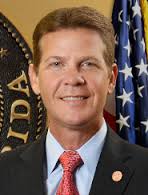One year and millions of pages of documents later, we’re nearing resolution in Richard Davis‘ investigation of the Caesars  Entertainment bankruptcy. His report on the company’s attempted restructuring is due at year’s end. At its heart will be several controversial asset transfers. Now, to you and I, selling Total Rewards from your right pocket to your left pocket for the grand sum of $0 may look for all the world like a fraudulent conveyance, but the court may not see it that way.
Entertainment bankruptcy. His report on the company’s attempted restructuring is due at year’s end. At its heart will be several controversial asset transfers. Now, to you and I, selling Total Rewards from your right pocket to your left pocket for the grand sum of $0 may look for all the world like a fraudulent conveyance, but the court may not see it that way.
In the meantime, Judge Benjamin Goldgar — who is constrained from appointing a mediator between the combatants — had to tell the conflicting parties in the case to, in essence, grow up and find their own mediator. “You don’t need my permission. Just click your heels together three times and say, ‘There is no place like mediation,’” said Goldgar, taking a page from the L. Frank Baum school of jurisprudence. Legal expert Erik Gordon thought Goldgar’s remarks betokened something deeper. “When you see something as unusual as this, one thing you can be sure of is the judge is plenty irritated with the parties,” he told Bloomberg.
Senior bondholders have plenty of incentive to see this thing settled. Once Caesars Entertainment Operating Co. is reorganized into a REIT, they’ll have an annual pool of $640 million in rental payments from which to reimburse themselves. Junior bondholders feel like they’re getting cut out of the action, hence the present impasse.
* Florida‘s Seminole Tribe is another step closer to a new compact with Gov. Rick Scott (R) after the state Senate Committee on Regulated Industries voted it out of committee and sent it on to state Senate President Andy Gardiner (R, right). Actually, what the  committee approved was Sen. Joe Negron‘s supersized version of the compact, which decouples live racing from slots and card games at parimutuels. It would also permit slots in six counties that have voted to add them. That’s a pretty significant expansion of gambling, one which the horseracing industry (and the dog-racing lobby) are likely to oppose for disincentivizing live racing. It’s also an open question how support there is for allowing slot-machine gambling to grow from two counties to eight. But that compact is start to look more and more like a reality rather than an election-year hot potato.
committee approved was Sen. Joe Negron‘s supersized version of the compact, which decouples live racing from slots and card games at parimutuels. It would also permit slots in six counties that have voted to add them. That’s a pretty significant expansion of gambling, one which the horseracing industry (and the dog-racing lobby) are likely to oppose for disincentivizing live racing. It’s also an open question how support there is for allowing slot-machine gambling to grow from two counties to eight. But that compact is start to look more and more like a reality rather than an election-year hot potato.
* The Massachusetts Gaming Commission has a reputation for moving slowly but it’s on the leading edge of the curve when it comes to adapting to skill-based slots. The new, draft rules are likely to be promulgated before the machines they regulate are. ‘‘They’re trying to find new ways to get people hooked on gambling,’’ wailed Stop Predatory Gambling‘s Les Bernal, while a spokesman for the American Gaming Association told Bernal, in effect, to cool his jets. The Bay State had been rather prescient where skill-based slots were concerned, writing permission for them into 2011 enabling legislation for casinos. Wynn Resorts and Penn National Gaming are holding off comment on the tentative rules but, with skill-based slots estimated to still be at least a year away, the Bay State will be prepared.
* When it comes to gambling, football players need to learn to just say no. It’s a freaking epidemic.

